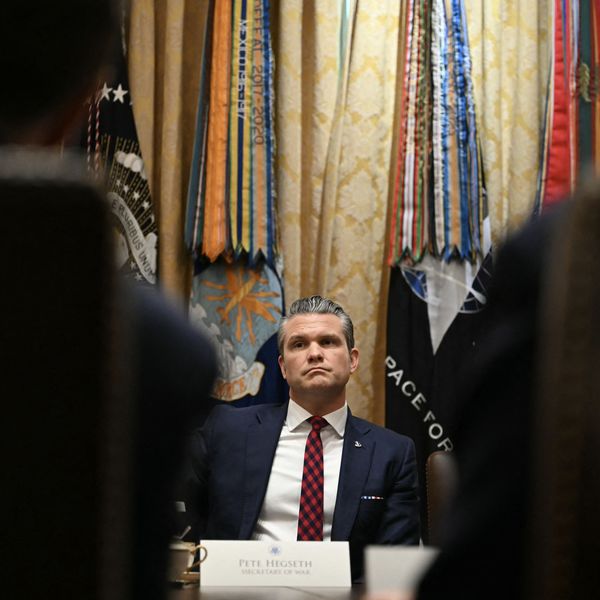It's been ten years since we lost Paul Wellstone, a relentless champion, a true public servant and one of the very few social movement senators we've ever had. He was the first politician whose death made me weep. But in an era of craven compromises and bipartisan austerity, it seems almost unfair to call Paul Wellstone a politician at all.
This week marks the anniversary of the airplane crash that killed Paul, his wife Sheila, their daughter Marcia, and the plane's crew. For countless Americans whose lives the Wellstones touched, the loss was personal. But the loss, and Paul's legacy, are also deeply political as well.
A college professor who was fired for activism, and then re-hired because of activism, Wellstone was a pioneer of conviction politics. He openly championed the democratic wing of the Democratic Party, and like George McGovern, his friend and a man he admired, he never apologized for his liberal beliefs.
Before he was ever a senator, Wellstone walked picket lines with farmers and workers. He got arrested defending causes. He taught his students about conviction and commitment. He was one of the few aspiring white politicians to "cross the color line" in 1988, serving as co-chair of the Jesse Jackson for president campaign in Minnesota. He was a constant proponent -- and exemplar -- of often-forgotten truths: Poverty is a national shame and an ever-present crisis. You don't have to sell your soul or embrace elite consensus to get elected.
He didn't just talk the talk, he walked his own walk. I will never forget the political courage he showed in the fall of 2002, standing tall to vote NO! on the invasion of Iraq, only a month before his second reelection day.
On occasion, Wellstone shared these insights in the pages of The Nation. Three years after his courageous vote against welfare reform -- only weeks before his first reelection day -- Wellstone warned that the law -- and the bipartisan refusal to honestly assess its impact -- was "creating a new class of people, the 'Disappeared Americans,' many of whom are children." The month after George W. Bush's inauguration, he reminded Democrats that the "center" Americans want politicians to govern from "is not the center the pundits and politicians in Washington talk about. Citizens want us to deal with issues that are at the center of their lives.."
In and out of office, Wellstone argued for the kind of synergy that too often eludes the Democrats and the American left: "Policy provides direction and an agenda for action; grassroots organizing builds a constituency to fight for change; and electoral politics is the main way, in the absence of sweeping social movements, that we contest for power and hold decision-makers accountable for progressive public policy."
"He was a champion on the inside, and you need that too," says Jeff Blodgett, Wellstone's former campaign manager and state director and the current Minnesota state director for the Obama campaign. "And he saw himself playing that important role. But a lot of what he did was helping the groups figure out how they could organize outside the halls of Congress so he could move things on the inside. "
Wellstone's legacy can be measured in part by the new generation of progressive representatives who followed in his footsteps, from the city council to the U.S. senate, carrying on the torch of "the Democratic wing of the Democratic party." I imagine he'd be heartened, but not surprised, that Al Franken won his seat back, that Minnesota Rep. Keith Ellison co-chairs the Congressional Progressive Caucus, and that feisty Senate candidates like Elizabeth Warren are rising up.
But Wellstone's legacy is equally clear in the work of an array of grassroots organizations inspired or re-invigorated by his efforts. Among the most significant is Wellstone Action, which happily labors year in and year out, training organizers, activists and candidates (55,000 and counting) in electoral and issue organizing. Wellstone Action Executive Director Ben Goldfarb says that as an alternative to "triangulation," the group is fostering "the Wellstone triangle: connecting 'core community organizing,' 'engaging directly in elections [as] an arena in which you can actually build and demonstrate power' and 'a public policy agenda.' " He adds that there are "a lot of folks who believe you can make change in one of those three, or two of those three, and very few who really get how to weave them all together. That was something [Wellstone] showed, and taught and talked about his entire life."
Paul Wellstone was not a tall man, but he was a giant of a politician, progressive, human. Ten years after, I still miss him.



